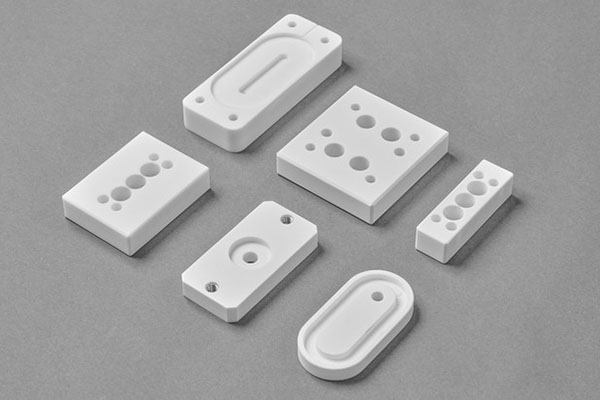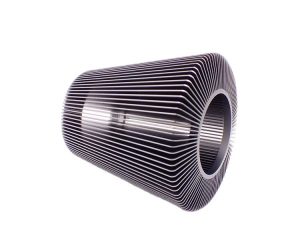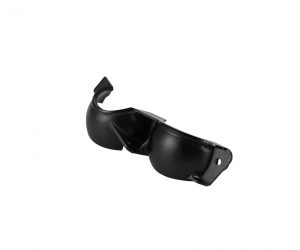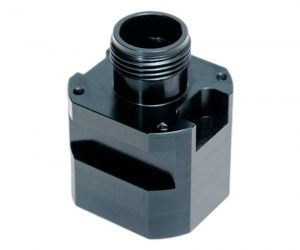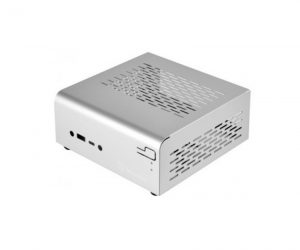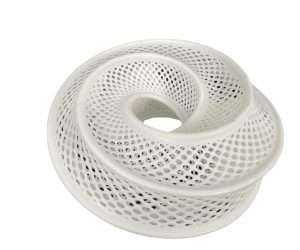1. Introduction: The Critical Role of Prototype Manufacturers in Modern Innovation
In an era where product lifecycles shrink and consumer demands evolve rapidly, prototype manufacturers have emerged as indispensable partners in transforming ideas into market-ready solutions. These firms bridge the gap between conceptual design and tangible reality, enabling engineers and businesses to validate concepts, mitigate risks, and accelerate time-to-market. According to a 2024 industry report, companies leveraging professional prototype manufacturers reduce development costs by 40% and cut design iteration time by 60% compared to in-house efforts. This article explores the core ways prototype manufacturers drive innovation, backed by data, case studies, and actionable insights for engineers and product teams.
2. Secret 1: Accelerating Design Iteration Through Agile Prototyping
2.1 The Speed Advantage: From CAD to Physical Model in Days
In the past, the journey from a Computer-Aided Design (CAD) model to a physical prototype was a long and arduous one, often taking weeks or even months. Traditional manufacturing methods, such as injection molding for plastic parts or die - casting for metal components, required the creation of expensive molds. The design of these molds was a complex process, involving detailed engineering drawings, machining, and quality checks. Any changes to the design during this stage were extremely costly and time - consuming, as the mold had to be re - engineered.
However, prototype manufacturers have revolutionized this process. They are at the forefront of leveraging advanced technologies to rapidly transform digital designs into tangible prototypes. 3D printing, also known as additive manufacturing, is one of the most prominent technologies in this regard. There are different types of 3D printing techniques, each with its own set of advantages. Fused Deposition Modeling (FDM) is popular for its simplicity and cost - effectiveness. It works by melting a thermoplastic filament, such as ABS or PLA, and extruding it layer by layer to build the object. Stereolithography (SLA) uses a laser to cure a photosensitive resin, creating highly detailed and smooth prototypes, which is ideal for applications where aesthetics and precision are crucial. Selective Laser Melting (SLM) is used for metal 3D printing, where a high - power laser melts metal powder layer by layer to form complex metal parts.
For Yigu Technology example, a startup in the consumer electronics sector was developing a new, ergonomic smartphone case. They had a detailed CAD design but needed a physical prototype to test the fit, feel, and functionality. By partnering with a prototype manufacturer that specialized in 3D printing, they were able to receive an ABS - printed prototype with fully functional hinges and a precise fit within just 48 hours. This rapid turnaround allowed them to quickly identify any design flaws, such as areas where the case was too tight or the hinge movement was restricted. In contrast, if they had opted for traditional injection molding, the process of creating the mold alone would have taken 2 - 3 weeks, not to mention the time for the actual molding and finishing of the prototype.
CNC (Computer Numerical Control) machining is another technology that prototype manufacturers rely on for rapid prototyping. It involves using pre - programmed computer software to control the movement of factory tools and machinery. CNC machining can work with a wide range of materials, including metals, plastics, and composites. It is highly accurate and can produce complex geometries, making it suitable for creating prototypes that require high precision, such as mechanical parts for engines or medical devices.
2.2 Iterative Validation: Reducing Costly Late - Stage Errors
Iterative validation is a cornerstone of modern product development, and prototype manufacturers play a vital role in enabling this process. By providing quick - turnaround prototypes, they allow companies to test and refine their designs multiple times before committing to mass production.
A comprehensive comparative analysis by the Product Development and Management Association (PDMA) revealed some eye - opening statistics. Companies that utilize external prototype manufacturers identify design flaws 70% earlier in the product development process compared to those that rely solely on in - house development without the support of specialized prototype services. This early identification of flaws is crucial, as it significantly reduces the number of post - launch defects. In fact, the same study showed that these companies experience a 55% reduction in post - launch defects.
Consider the case of a medical device startup developing a new laparoscopic tool. The design of the tool's grip was crucial for the surgeon's comfort and precision during minimally invasive procedures. Instead of investing a large amount of money in a single, expensive mold for production, the startup worked with a prototype manufacturer to create 10 rapid prototypes. Each prototype cost approximately \(500 and was used for iterative testing. They gathered feedback from surgeons, made design adjustments, and printed new prototypes. Through this iterative process, they were able to refine the grip design to a point where it met the high - standards required for medical use. If they had skipped this iterative prototyping phase and gone straight to investing \)50,000 in a single mold, there was a high risk that the mold would produce a tool that failed user testing, resulting in a significant financial loss and delay in product launch.
To further illustrate the cost - effectiveness and efficiency of iterative prototyping with the help of prototype manufacturers, the following Yigu Technology table compares the traditional approach with the agile prototyping approach:
| Aspect | Traditional Approach | Agile Prototyping with Prototype Manufacturers |
| Time from Design to First Prototype | 14 - 21 days | 3 - 7 days |
| Cost per Prototype (Complex Parts) | \(10,000 - \)30,000 | \(1,500 - \)5,000 |
| Defect Detection Rate | 40% (post - prototyping) | 90% (during iterative testing) |
The numbers clearly show that prototype manufacturers offer a more efficient and cost - effective way to develop products, ensuring that companies can bring high - quality products to market faster while minimizing risks and costs associated with late - stage design changes.
3. Secret 2: Unmatched Technical Capability for Complex Geometries
3.1 Advanced Prototyping Technologies
In the realm of prototype manufacturing, the ability to handle complex geometries is a game - changer. Leading prototype manufacturers are equipped with a diverse range of advanced technologies, each tailored to meet specific design and material requirements.
3D printing, also known as additive manufacturing, has emerged as a go - to technology for creating intricate and complex shapes. It is based on the principle of building objects layer by layer from a digital model. This technology is particularly ideal for applications that demand complex internal structures or lattice designs, such as those found in aerospace components. For Yigu Technology instance, in the aerospace industry, parts like engine components often require lattice structures to reduce weight while maintaining strength. 3D printing allows for the creation of these lattice structures with ease. Materials used in 3D printing are also diverse. Thermoplastic polyurethane (TPU) is a popular choice for applications in soft robotics. Its flexibility makes it suitable for creating components that need to bend, stretch, or conform to different shapes, such as robotic grippers or flexible joints. On the other hand, polyether ether ketone (PEEK) is favored for industrial parts that are exposed to high temperatures and mechanical stress. PEEK has excellent heat - resistance and mechanical properties, making it suitable for use in automotive engines, oil and gas pipelines, and other high - performance applications.
CNC machining is another cornerstone technology in prototype manufacturing, especially when it comes to achieving high precision. It operates on the principle of subtracting material from a solid block to create the desired shape. CNC machines are capable of achieving tolerances as tight as ±0.01mm, making them indispensable for the production of metal prototypes. In the automotive industry, aluminum alloy brackets are commonly produced using CNC machining. These brackets need to be precisely manufactured to ensure proper fitment within the vehicle's structure and to withstand the mechanical forces exerted during operation. In the medical field, titanium is a frequently used material for implants due to its biocompatibility and high strength - to - weight ratio. CNC - machined titanium medical implants, such as hip replacements or dental implants, require extreme precision to ensure they function correctly within the human body and to minimize the risk of rejection or complications.
Vacuum casting offers a cost - effective solution for producing small - to - medium - sized batches of plastic parts. It is a low - pressure casting process that involves creating a mold from a master pattern, usually made through 3D printing or CNC machining. Liquid resin is then poured into the mold under vacuum conditions to remove air bubbles and ensure a smooth finish. This process is ideal for functional testing of plastic components before committing to large - scale injection molding. For Yigu Technology example, a consumer electronics company developing a new smartphone case can use vacuum casting to produce up to 50 prototypes. These prototypes can be used to test the fit, feel, and functionality of the case, such as the ease of opening and closing, the grip, and the protection it offers to the device. The relatively low cost of vacuum casting allows for multiple iterations of testing without the high upfront investment required for injection molding.
3.2 Material Expertise: From Plastics to Exotic Alloys
The expertise of prototype manufacturers extends far beyond the technologies they use; it also encompasses a deep understanding of materials. These manufacturers are well - versed in over 100 different materials, allowing them to select the most suitable one for each prototype project.
Polymers are among the most commonly used materials in prototype manufacturing. Acrylonitrile Butadiene Styrene (ABS) is a popular choice for creating conceptual models. It is easy to print using 3D printers, has a relatively low cost, and offers good strength and durability for non - critical applications. Polylactic Acid (PLA) is another widely used polymer, especially in the hobbyist and educational sectors. It is biodegradable, making it an environmentally friendly option, and has a smooth finish when printed. Nylon is often used for parts that require some level of flexibility and abrasion resistance, such as gears or small mechanical components.
Engineering plastics take things a step further. Polyoxymethylene (POM), also known as acetal, is valued for its high stiffness, low friction, and excellent dimensional stability. It is commonly used in applications where precision and durability are crucial, such as in mechanical parts for watches or small motors. Polycarbonate (PC) is a strong and impact - resistant plastic, making it suitable for applications like protective housings for electronic devices or safety goggles. Polyethylene terephthalate glycol - modified (PETG) combines the transparency of PET with improved impact resistance and heat resistance, making it a great choice for products like food containers, display cases, or 3D - printed prototypes that require both clarity and strength.
Metals are essential for applications that demand high strength, heat resistance, or electrical conductivity. Aluminum is one of the most widely used metals in prototype manufacturing due to its low density, high strength - to - weight ratio, and excellent corrosion resistance. It is commonly used in the automotive, aerospace, and electronics industries. Stainless steel, with its high chromium content, offers superior corrosion resistance and strength, making it suitable for applications in harsh environments, such as medical equipment, kitchen appliances, and industrial machinery. Titanium, as mentioned earlier, is a premium material known for its biocompatibility, high strength, and low density. It is used in high - end applications like aerospace components, medical implants, and high - performance sports equipment.
A notable example of a company leveraging prototype manufacturers' material expertise is Tesla. In the development of its Cybertruck, Tesla partnered with a prototype manufacturer to produce a 3D - printed Inconel 718 motor bracket. Inconel 718 is a nickel - based superalloy with excellent high - temperature strength, corrosion resistance, and fatigue resistance. By using 3D printing to produce the motor bracket, Tesla achieved a 25% weight reduction compared to traditionally machined versions. This weight reduction not only improves the vehicle's energy efficiency but also contributes to better handling and performance. Additionally, the 3D - printed bracket demonstrated 40% faster heat dissipation. This is crucial for a high - performance electric vehicle like the Cybertruck, where efficient heat management is essential to prevent overheating of the motor and ensure optimal performance over extended periods of use. This case study highlights how prototype manufacturers' material and technological expertise can lead to significant improvements in product performance and design.
4. Industry Impact: Case Studies in Innovation
4.1 Aerospace: Testing Flight-Ready Prototypes
The aerospace industry operates in a high - stakes environment where safety, performance, and efficiency are non - negotiable. Boeing's collaboration with prototype manufacturers in the development of the 787 Dreamliner is a prime example of how prototype manufacturing can revolutionize product development in this industry.
Boeing faced the challenge of designing a new, fuel - efficient aircraft with advanced composite materials for the 787 Dreamliner. The wing sections of the 787 are made primarily of composite materials, which offer significant advantages in terms of weight reduction and fuel efficiency compared to traditional aluminum alloys. However, before investing a staggering $10 million in tooling for mass production, Boeing needed to ensure that the design was both aerodynamically efficient and structurally sound.
To achieve this, Boeing partnered with prototype manufacturers to create full - scale composite prototypes of the 787 Dreamliner wing sections. These prototypes were subjected to rigorous testing in wind tunnels and structural test facilities. In wind tunnel tests, the prototypes were exposed to a range of wind speeds and angles of attack to measure their aerodynamic performance. Data on lift, drag, and pressure distribution were collected and analyzed. The results from these tests were used to fine - tune the wing design, ensuring that it would provide optimal lift and minimal drag during flight, thereby improving fuel efficiency.
Structural integrity tests were equally crucial. The prototypes were loaded with simulated flight loads to ensure that they could withstand the forces experienced during takeoff, flight, and landing. These tests involved applying static loads to simulate the maximum stress the wings would encounter, as well as dynamic loads to simulate vibrations and turbulence. The use of composite materials in the prototypes allowed Boeing to test the performance of these materials under real - world conditions.
The benefits of this approach were substantial. By using prototypes to test the design before full - scale production, Boeing was able to reduce program delays by a remarkable 6 months. This is a significant advantage in the aerospace industry, where delays can lead to substantial financial losses and missed market opportunities. Additionally, the thorough testing of the prototypes ensured that the final product would comply with the stringent safety standards set by the Federal Aviation Administration (FAA). In fact, the use of prototypes allowed Boeing to identify and address potential safety issues early in the development process, reducing the risk of safety - related incidents during the aircraft's operational life.
4.2 Medical Devices: Customization at Scale
In the medical device industry, the ability to provide customized solutions is rapidly becoming a necessity. Stryker, a leading medical device company, has harnessed the power of prototype manufacturers to achieve customization at scale, particularly in the production of patient - specific knee implants.
Traditional knee implants are often one - size - fits - most, which may not be the best solution for every patient. Each patient's anatomy is unique, and a poorly - fitting implant can lead to discomfort, reduced mobility, and a higher risk of implant failure. Stryker addressed this issue by collaborating with prototype manufacturers to produce patient - specific knee implants.
The process begins with a CT scan of the patient's knee. The CT scan provides detailed, three - dimensional data of the patient's knee anatomy. This data is then used to create a digital model of the knee implant using computer - aided design (CAD) software. Prototype manufacturers use 3D - printing technology to produce the implant from a titanium alloy. The use of 3D - printing allows for the creation of implants with complex geometries, which can be tailored to fit the patient's unique anatomy precisely.
One of the key features of these Yigu Technology 3D - printed implants is their porous surface. The porous surface is designed to promote bone integration, allowing the patient's natural bone to grow into the implant over time. This not only improves the long - term stability of the implant but also reduces the risk of implant loosening, which is a common complication with traditional implants.
The impact of these patient - specific knee implants on surgical procedures and patient outcomes is significant. Clinical studies have shown that the use of these implants reduces surgery time by 20%. This is because the implants are pre - designed to fit the patient's anatomy, reducing the need for intraoperative adjustments. The improved fit also leads to better patient outcomes. Patients who received these customized implants had a 15% lower revision rate compared to those who received generic implants. A lower revision rate means fewer additional surgeries for the patient, less pain and suffering, and lower healthcare costs in the long run.
4.3 Consumer Electronics: Perfecting User Experience
In the highly competitive consumer electronics market, user experience is king. Apple, a company known for its commitment to design and user - friendliness, works closely with prototype manufacturers to refine the design of its products, such as the iPhone, to meet and exceed consumer expectations.
The design of the iPhone casing is a complex process that involves considerations of aesthetics, ergonomics, wireless signal interference, and durability. Apple's prototype manufacturers play a crucial role in this process by creating hundreds of high - fidelity prototypes.
For ergonomic testing, prototypes are used to evaluate how the phone feels in the hand. Factors such as the curvature of the edges, the size and placement of the buttons, and the overall weight and balance of the device are all carefully considered. User feedback is gathered through usability testing, where volunteers are asked to perform common tasks such as making calls, sending texts, and using apps. This feedback is then used to make design improvements to subsequent prototypes.
Wireless signal interference is another critical factor. With the increasing reliance on wireless technology in smartphones, ensuring that the casing does not interfere with the phone's wireless signals is essential. Prototype manufacturers use specialized equipment to test the signal strength and quality of the prototypes in different environments. They can identify areas where the casing material or design may be causing signal degradation and make adjustments accordingly. For example, certain materials may be replaced or the internal layout of the components may be modified to improve signal performance.
Drop resistance is also a major concern for consumers. Apple's prototype manufacturers subject the prototypes to a series of drop tests from different heights and angles. The results of these tests are analyzed to identify areas of the casing that are most vulnerable to damage. Design changes, such as the addition of shock - absorbing materials or the reinforcement of certain areas, are then made to improve the phone's drop resistance.
Each prototype iteration is a step towards ensuring that the final product meets consumer expectations for aesthetics and durability. Apple's attention to detail in the prototyping process has contributed to the iPhone's reputation as a high - quality, user - friendly device. It has also helped Apple maintain its position as a leader in the highly competitive consumer electronics market.
5. Conclusion: The Strategic Value of Prototype Manufacturers
Yigu Technology Prototype manufacturers have transcended their traditional role as mere service providers and have emerged as strategic partners in the innovation ecosystem. Their impact on product development is far - reaching, influencing every stage from concept to market launch.
By leveraging advanced technologies like 3D printing, CNC machining, and vacuum casting, prototype manufacturers have significantly accelerated the design iteration process. They enable companies to transform digital designs into physical prototypes in a matter of days, rather than weeks or months. This speed not only reduces the time - to - market but also allows for more frequent testing and refinement of product designs. The ability to quickly identify and address design flaws through iterative validation has saved companies substantial amounts of money that would otherwise be spent on costly late - stage errors.
Their technical capabilities, especially in handling complex geometries and a wide range of materials, are a game - changer. Whether it's creating intricate lattice structures in aerospace components using 3D printing or machining high - precision titanium medical implants, prototype manufacturers have the expertise to bring even the most complex design concepts to life. Their deep knowledge of over 100 materials, from common polymers to exotic alloys, ensures that the right material is selected for each application, optimizing product performance.
In bridging the gap between design and production, prototype manufacturers' Design for Manufacturing (DFM) expertise and scalability capabilities are invaluable. Their DFM advice helps companies optimize designs for efficient production, reducing production costs and time. The ability to scale production from a single prototype to low - volume production using technologies like rapid tooling and DMLS provides startups and established companies with the flexibility to test the market, gather feedback, and make design improvements before committing to large - scale production.
FAQ: Common Questions About Prototype Manufacturers
Q1: How do I choose a prototype manufacturer for my project?
A1: Prioritize manufacturers with experience in your industry and material (e.g., aerospace for titanium, consumer goods for injection - molded plastics). Review their portfolio, ask for references, and evaluate their ability to provide DFM feedback and scalable solutions.
Q2: What’s the difference between low - fidelity and high - fidelity prototypes?
A1: Low - fidelity prototypes (e.g., 3D - printed plastic models) focus on form and basic functionality, ideal for early - stage design reviews. High - fidelity prototypes mimic final materials and finishes (e.g., CNC - machined metal with surface coatings), used for user testing and marketing.
Q3: Can prototype manufacturers handle confidential designs?
A1: Reputable manufacturers sign non - disclosure agreements (NDAs) and implement security measures like restricted file access and facility controls. Look for partners with proven experience in protecting intellectual property, especially in competitive sectors like electronics and medical devices.
